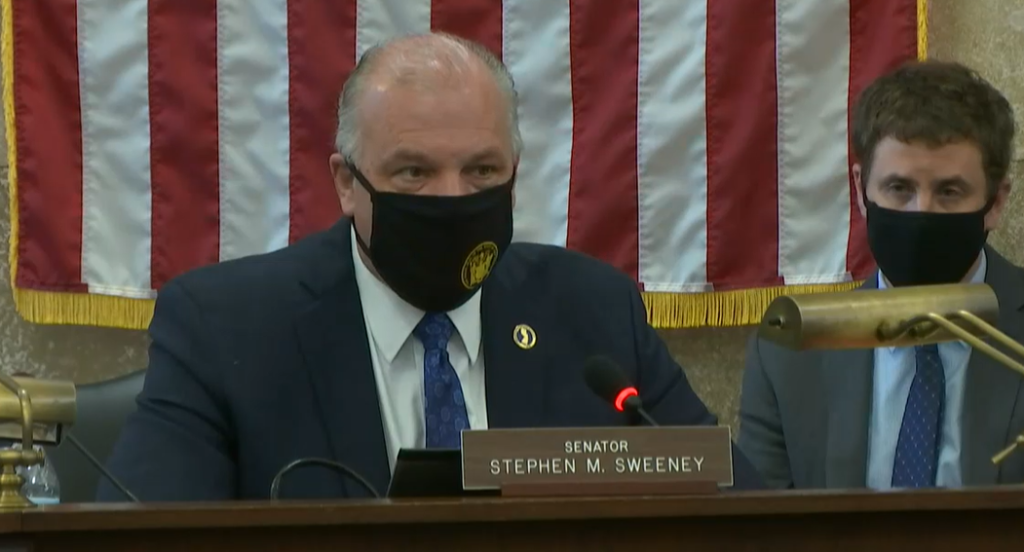Sweeney Bill Would Expand Model School Program for Students with Disabilities

Sweeney Bill Would Expand Model School Program for Students with Disabilities
TRENTON – A model school program for students with special needs would be expanded to 10 schools in each of three regions of the state, under terms of legislation authored by Senate President Steve Sweeney that was approved by the Senate Budget Committee today.
The bill, S-2486, would use the “Clayton Model,” developed in the Clayton School District in Gloucester County, as the blueprint for similar programs that promote the “social and emotional learning” of students with physical or developmental disabilities as a means of advancing their academic performance and life skills.
“This program has been successful in helping students with special needs get the support they need to attain a quality education and gain the living skills that will help them for their entire lives,” said Senator Sweeney (D-Gloucester/Salem/Cumberland). “This program makes use of the abilities of students and the role of educators and family members in their lives. The controlled expansion of the program will make it more available throughout the state.”
Senator Sweeney said that these educational programs will be “especially important for students with disabilities in the time of COVID when social and emotional support for them will be essential.”
The program uses Individualized Education Plans for the students and makes use of “tiered” support services, such as working in small groups and providing individualized counseling. The program focuses on promoting positive youth development for students in the classroom and at home while offering strategic support to teachers and positive parenting techniques for families.
The bill would create a five-year pilot program in the Department of Education to expand the Clayton Model to 10 public schools in each of three counties in the northern, central and southern regions of the state.
The Senator Walter Rand Institute will be responsible for developing and implementing a comprehensive evaluation of the pilot programs that will include a cost-benefit analysis.
Many of the organizations responsible for the success of the program offered these comments:
Darren Spielman, executive director, Senator Walter Rand Institute for Public Affairs, Rutgers University-Camden:
“Over time, we have found that the positive impacts of the Clayton Model on the entire school community are wide ranging,” said Darren Spielman, executive director of Senator Walter Rand Institute for Public Affairs at Rutgers University-Camden. “Because it is a holistic, collaborative approach, beneficial outcomes from the Clayton Model go beyond the social development in students and improved academics and extend into the lives of families, caregivers, and the school’s culture. This framework – built on understanding the broader individual and environment that students confront on a daily basis – simultaneously fosters their individual strengths and builds their capacity to learn and thrive.”
Lisa Twomey, special project coordinator, Clayton Public Schools:
“Social emotional health significantly impacts positive youth development and academic achievement,” said Lisa Twomey, special projects coordinator at Clayton Public Schools. “While much of social emotional learning occurs at home, it manifests in social relationships and in the classroom. The Clayton Model provides students with the tools they need to learn in developmentally, contextually, and culturally appropriate ways, and supports a nurturing and safe school environment so that all students come to the classroom ready to learn and achieve.”
Nick Koutsogiannis, superintendent, Clayton Public Schools:
“I’m proud of the work that our teachers and administration have done to build a social emotional learning program that is inclusive, agile, and most importantly, empowers our students and families,” said Nick Koutsogiannis, superintendent of Clayton Public Schools. “The Clayton Model has changed the lives of many of our students and their families. During this time of unprecedented need and uncertainty due to the Covid-19 pandemic, it is important for us to support educational models that meet the social and emotional needs of our students.”
The committee vote was 12-0.
(Visited 19 times, 1 visits today)









